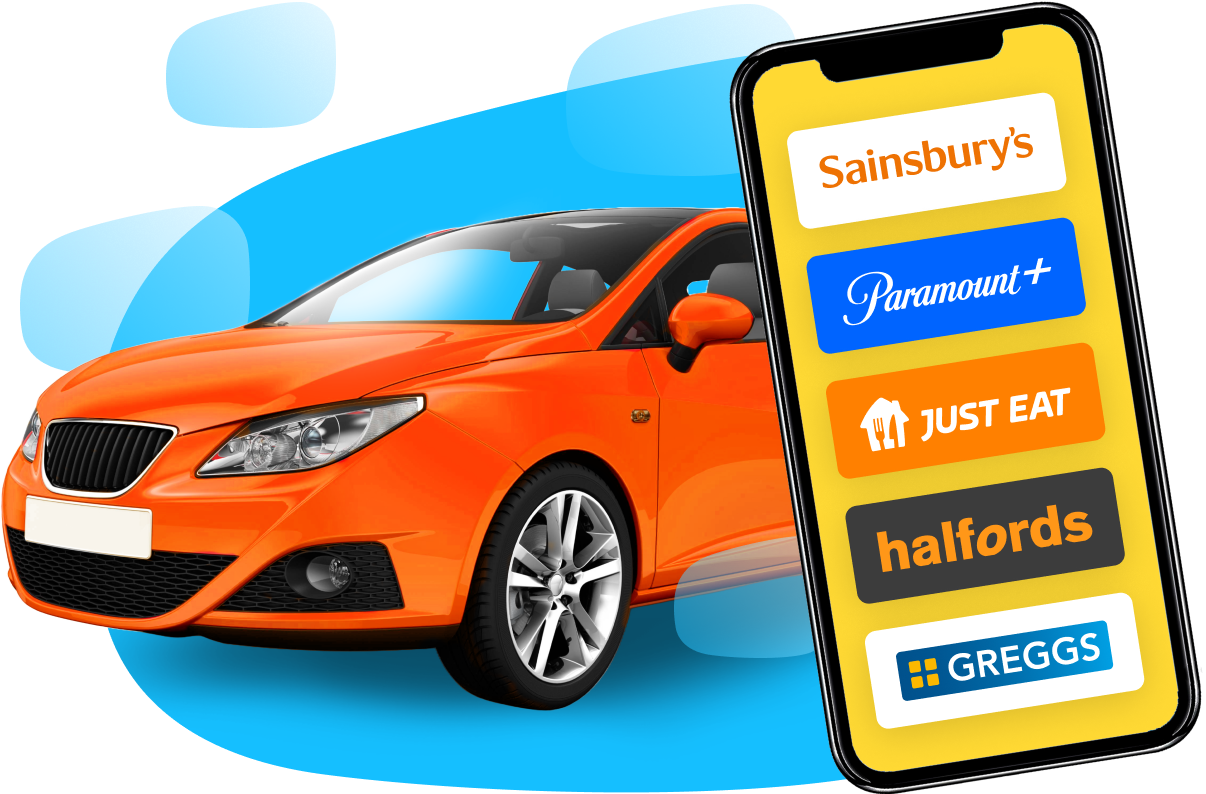What do you need to know?
 How to get our best prices
How to get our best prices
From tailoring your cover to choosing the right time to buy, there are plenty of ways to get our best prices. See how much car insurance costs for your age group and explore the best ways to lower your costs.
The cost of car insurance for 17-20 year olds
For drivers aged 17 to 20, car insurance is among the most expensive, with the latest average policy costing about £2,151**.
It’s frustrating, but there’s a reason - insurers see new drivers as higher risk. Less experience means more chance of something going wrong. But thankfully, there are ways to bring these costs down.
Find out more about young driver insurance.
Top money-saving tips for young drivers:
-
Consider a black box policy – It tracks how you drive and rewards safer habits with lower prices.
-
Take an advanced driving course – It can help build your confidence and can lead to cheaper insurance.
-
Add a more experienced driver to your policy, like a parent, to help lower your payments. Just make sure you’re still listed as the main driver.
The cost of car insurance for 21-30 year olds
By now, you’ve probably got a few years of driving under your belt. Usually that means insurance starts to get a bit cheaper, with 25 year olds now paying an average of £1,279**.
That said, prices can still be high if you’ve had a claim, points on your licence, or not built up much of a no-claims bonus yet.
More information about car insurance for young drivers.
Top money-saving tips for 21-30 years old:
-
Build your no-claims bonus – The longer you go without making a claim, the more money you could save.
-
Avoid modifications – Spoilers or tinted windows might look great, but they can bump up your insurance price.
-
Choose a sensible car - Models in lower insurance groups tend to cost less to cover. Find out what insurance group a car is in with our checker.
The cost of car insurance for 31-50 year olds
This is usually when you can find the cheapest car insurance prices, with the latest average policy for 45 year olds costing about £747**.
You’ve likely built up experience and maybe a decent no-claims bonus too.
Top money-saving tips for 31-50 years old:
-
Shop around every year – There could be better deals out there. It might surprise you how much you could save!
-
Avoid auto-renewing – Even if your price seems fair, sticking with the same insurer can cost you more.
-
Pay annually if you can - Paying monthly often comes with added interest. If you’re able to pay upfront, it usually works out cheaper.
The cost of car insurance for 51-70 year olds
Insurance costs are often still fairly low at this stage, with 65 year olds paying an average of £456**. But they can start to creep up again as you approach 70.
That’s because insurers factor in things like your age, health, and how often you drive.
Find out more about over 50’s car insurance.
Top money-saving tips for over 50s:
-
Review your level of cover – Had the same policy for years? It’s time to review it! You might be paying for extras you no longer use.
-
We’ll beat your renewal – Or we’ll pay you the difference - plus an extra £20!
-
Not driving as much these days? Only pay for the miles you use with a pay-as-you-go policy.
The cost of car insurance for over 70s
Once you hit 70, you’ll need to renew your driving licence every 3 years.
At the same time, insurers may start to reassess your risk level – which can sometimes lead to higher costs, even if nothing about your driving has changed. The latest average policy costs about £495**.
Find out more about car insurance for over 70s.
Top money-saving tips for over 70s:
-
Look at specialist providers for older drivers – Some providers offer lower prices or more tailored cover.
-
Don’t overestimate your mileage – If you drive less these days, you could get cheaper quotes if you’re realistic with your annual mileage.
-
Switch to 'retired' not 'unemployed - If your previous job was seen as high risk and your now retired, this could help reduce how much you pay.
The cheapest time to buy
‘’The right timing can make all the difference when it comes to your car insurance prices.
In fact, we’ve found that buying around 3 weeks before your policy start date is significantly cheaper than any other time2.
But whenever you buy, it still pays to be organised. Buying early shows insurers you’re careful, so they might reward you with a discount!
Need a policy sooner? Not to worry. There are still plenty of ways that you could save money on your next car insurance policy.‘’
2Confused.com data Q4 2024.
Save money on your car insurance
Want a cheaper car insurance quote? Follow these simple tips:
Make sure your mileage is accurate
Overestimate, and you pay more than you should. Underestimate, and you risk invalidating your policy. The UK average is around 6,600 miles2.
Add a named driver
An older, experienced driver can lower your price, but adding a younger driver could push it up. Find out more about adding a named driver to your policy.
Check your job title is correct
Some job titles cost more. Be accurate, but don’t tweak it just to save, you could invalidate your policy.
2Confused.com data Q4 2024.
Park securely
A driveway or garage can be cheaper compared to parking on the road . If you don’t have a driveway there are other ways you can make your car more secure.
Pay annually if you can
Paying in one go is usually cheaper than paying monthly, as insurers charge interest for spreading the cost. If you can afford it, pay upfront and pocket the savings!
Want more money-saving tips? Check out our full guide on how to get cheap car insurance, or see the cheapest cars to insure!
 How to compare prices
How to compare prices
Comparing prices has never been easier. Get your quotes in just three simple steps - give us your details, choose your level of cover and we’ll find the best policies for your needs. Want to know more about how it works? We’ve got it covered.
Compare car insurance quotes in minutes
Find our cheapest car insurance deal in just 3 quick steps. Used us before? It’s even faster! Just log in to get started.
Tell us about yourself
Choose your level of cover
We’ll do the hard work
 How to choose the right level of cover
How to choose the right level of cover
The right level of cover for you depends on your needs and budget. With 3 main levels of cover to choose from and an abundance of add-ons available, we break down your options so you can choose with confidence.
Choosing the right car insurance
There are 3 main levels of cover to choose from. Whichever you choose, make sure to understand what's covered and any excess you might have to pay if you need to make a claim.
Add-ons to enhance your policy
Even comprehensive insurance doesn’t cover everything. Car insurance optional extras can provide added protection, and you might want to consider these upgrades:
Insurance options for different driver types
Insurance options for car types
Insurance options for types of driving
Car insurance guides to help you
See more car insurance guidesFrequently asked questions
Can I add someone to my car insurance policy?
Yes, you can add named drivers to your car insurance policy. Just provide their:
- Age & occupation
- Accident & claim history
- Motoring convictions
The main driver should be the person who drives the most! Named drivers should only use the car occasionally.
Can I drive someone else’s car with my comprehensive policy?
Maybe! Some policies include Driving Other Cars (DOC) cover—check your insurance certificate to be sure.
- DOC only provides third-party cover and is for emergencies.
- For full protection, consider temporary car insurance or becoming a named driver.
How do I find out my car’s value for a quote?
How the FCA ensure you get fair prices
To protect customers, the FCA stopped insurers from overcharging loyal customers, this is sometimes known as price walking.
- Your renewal price can’t be higher than a new customer’s price when buying the same way.
- Your price could still go up due to other factors, but you won’t be penalised for staying.
- Still, the best deals come from shopping around! Compare now and see what you could save.
Do insurance quotes affect my credit score?
Getting a quote won’t impact your credit rating. Providers only run soft searches, which are visible to you but don’t affect your score.
Only paying monthly triggers a ‘hard search’, this is just to check affordability.
1Correct as of February 2025













